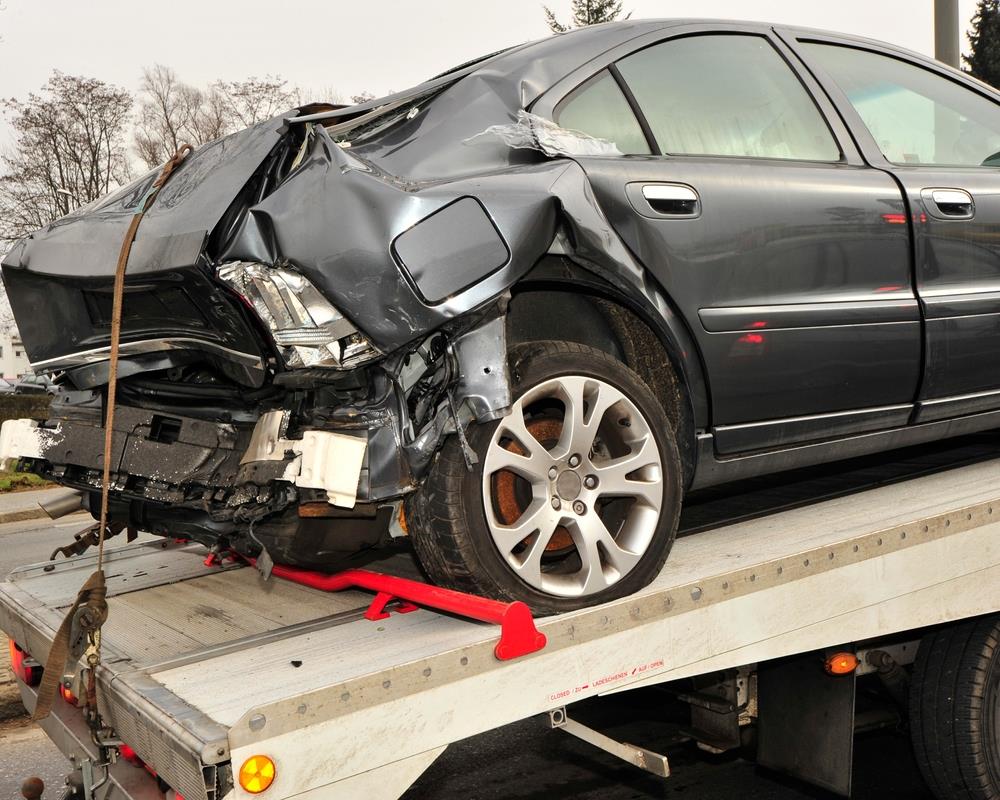My Car Was Totaled and I Wasn’t At Fault, What Do I Do?

Not everyone can get a new car whenever they need one. With your resources currently limited, you may be forced to use a functional car that is still quite old by today’s standards. While driving around Baltimore, an irresponsible motorist strikes your old car and causes significant damage. After contacting the relevant insurance company, they also mentioned that your car is totaled.
What are your options if your car has been declared totaled by an insurance company? That is the main question Baltimore auto accident lawyer John Leppler’s law firm will be answering in this article. Stick around to learn more about the steps you must take and what you can expect after that accident.
What is the Maryland “Total Loss” Law?
You are probably familiar with the term “totaled” and can guess what it means based on context clues. There is a clear definition for that term in Maryland based on existing laws.
According to Maryland law, any vehicle can be declared a total loss if the cost to repair it so you can legally use it on a highway exceeds 75% of its fair market value before it sustained accidental or intentional damage. The damage can result from a collision, some other form of accident, fire, flood, trespassing, or any other similar occurrence.
Once a vehicle sustains damage exceeding the established 75% threshold, an insurance company can pass on paying for its repairs. Instead, the insurance company can offer compensation in the form of a cash settlement.
Since the threshold for a car being declared a total loss is high, you may think there is no way your accident could lead to that kind of result. However, you cannot dismiss that possibility if you drive an older car.
Body repairs for older vehicles are more expensive than regular car fixes. Even if the result of an accident has not rendered your car unsafe to be used on the road, an insurance company may have no incentive to pay for its repairs. Their assessment of the situation may reveal they stand to lose more money by footing the bill for those expenses.
That revelation may be unpleasant, especially if the vehicle holds sentimental value. Such an outcome would be unfortunate, but you must acknowledge it as a distinct possibility.
Who Determines the Value of My Car?
Now that we know when a car is considered totaled, let’s tackle other important questions concerning that topic. Those questions include:
- Who is responsible for determining if your vehicle has been totaled?
- What resources are used to gauge a vehicle’s fair market value?
The answers to those questions yield valuable insight into the process you will go through following your accident. Continue below to find the answers to those questions.
Who is Responsible for Determining if Your Vehicle Has Been Totaled?
The decision to declare a car totaled is not made arbitrarily. Instead, the relevant insurance company gets involved and attempts to gauge the car’s value. To do that, an insurance company will assign an adjuster to the case.
The adjuster’s job is to gauge the extent of the damage the vehicle has sustained. They will then contact repair shops and determine the estimated cost of the necessary repairs. If they hear that the potential cost of repairs surpasses the 75% threshold we discussed in the previous section, you can expect the adjuster to declare your vehicle totaled.
By the way, an insurer can still declare your vehicle totaled even if it does not meet the established total loss threshold. According to Kelley Blue Book, an insurance agency can make that declaration if they believe your vehicle will remain unsafe to drive even after the necessary repairs are completed. The insurer can also proceed with the same declaration if you fix the vehicle yourself.
What Resources Are Used to Gauge a Vehicle’s Fair Market Value?
We have already mentioned the term “fair market value” a few times in this article, but where does that come from? Insurance companies typically use two resources to create a fair market value for a particular vehicle. Those resources are Kelley Blue Book and Edmunds.com.
An adjuster will enter your vehicle’s details into those websites and examine the valuations they receive. Note that the details they input are based on your car’s condition before it was involved in the recent accident. The adjuster can then perform additional calculations to check if your vehicle can be considered a total loss.
Although Kelley Blue Book and Edmunds.com are the go-to resources for valuations, insurance companies can also make assessments based on information they get from used car dealerships. They may look at vehicles similar to yours and come up with an estimate using their prices.
Can I Keep My Car Even Though It Has Been Declared Totaled?
After assessing the damage to your vehicle, the relevant insurance company decides not to pay for repairs and declares it a total loss instead. The decision comes as an unpleasant surprise because you know that your vehicle’s fair market value will not be enough to cover the cost of a used car.
So, what can you do at that point? Can you keep using your car even if an insurer says it is totaled?
Keeping the car is an option, but that decision will impact the payment you receive from the insurer. Because you chose to keep the vehicle, the insurance company now has the option to deduct money from your cash settlement. They can subtract specific values from your payout.
A car’s salvage value is determined by how much it would sell for scrap. That can still amount to a decent chunk of change, so do not minimize the impact its deduction can have on your compensation. The insurer will also check if you still owe money on your vehicle. If you do, they will deduct money from your settlement to pay that debt.
You must also secure a salvage title if you intend to keep your car. To get a salvage title, you must repair your vehicle and bring it to the Maryland Motor Vehicle Administration. The MVA will inspect your car and check if it can still be driven safely. You will receive the salvage title if your vehicle passes that inspection.
Hopefully, you do end up with that salvage title because a totaled vehicle is difficult to sell even after it has been repaired. Those repairs will go to waste if your car is still deemed ineligible for the road.
Can I Receive a Bigger Cash Settlement for My Totaled Car?
It is obvious that your totaled vehicle is no longer safe for the road, but the payout you are likely to receive is not enough to cover the cost of a new car. What can you do in that scenario? One option involves disputing the assessed value provided by the insurance company.
Send detailed pre-accident records of your vehicle to the insurance company and ask for another assessment. The new information you provide may adjust the valuation of your totaled car. You may receive a larger payout as a result.
You can also get your totaled car’s valuation adjusted by enlisting the services of an independent appraiser. Provide the appraiser with your vehicle’s pre-accident information and see what they say about its value. A sizable disparity in the two assessments indicates that you should probably get a larger settlement.
What Are Other Uses for My Totaled Car?
There is not much else you can do with your totaled car if it is no longer safe to drive and has a low market value. At that point, your best option may be to donate your vehicle and claim it as a tax deduction.
Reach out to charitable organizations in your area and check if they will accept your vehicle. The charity can then sell your vehicle. You can use the sale price of your car as the tax deduction.
According to TurboTax, you can also use your car’s fair market value as your tax deduction if the charity sells it at a significant discount. Also, you can claim a $500 tax deduction even if your car is moved for a lower price than that.
Who Covers the Cost of the Damages to My Car?
Throughout this article, we have noted that the insurer is tasked with offering a payout for a totaled car. But which insurer will provide that cash settlement? Do you have to claim it from your insurer or another company?
Because Maryland is an at-fault state regarding personal injury claims, the affected party can recoup compensation from the other driver’s insurer. You can contact the other driver’s insurer and file a compensation claim.
Of course, claiming compensation from the other party’s insurer is easier said than done. Insurers typically do not offer payouts as soon as someone requests them. They will first assign an adjuster to investigate your claim and determine its legitimacy. The adjuster will specifically check if you share the blame for the accident.
Remember that Maryland follows the rule of contributory negligence when it decides personal injury claims. Contributory negligence bars claimants from recovering damages if they are even 1% responsible for an accident. If the adjuster discovers that the accident is partially your fault, they can deny your claim.
There is always a chance that the adjuster rules against you following their investigation. Do not lose heart if that happens. Hire a car accident lawyer and dispute their findings. You can also take your case to trial until you get a fair ruling.
Who Covers the Cost of the Damages if the Other Driver is Uninsured?
We take to the road fully expecting all our fellow drivers to be insured. Unfortunately, not all motorists adhere to that rule. For one reason or another, they pass on purchasing insurance without considering how that could affect them or their fellow drivers.
The party responsible for your accident may also be uninsured. How should you go about claiming compensation in that case?
You have two main options if an uninsured driver totals your car.
First, you can sue the uninsured driver and force them to pay for your losses out of pocket. This would be an ideal solution, but the chances of the uninsured driver affording your losses are fairly low because they are not even paying for insurance.
If forcing the responsible driver to pay for your losses is not an option, you can still file a claim with your insurer. You can seek compensation using your uninsured motorist or personal injury protection (PIP) coverage.
Working with a lawyer is highly recommended if you are seeking compensation this way.
What Happens if My Car Needs to Be Towed?
The accident you were involved in may leave your vehicle unusable. Since your car cannot be driven to a safe location, it will need to be towed.
Get involved right away because where the tow truck takes your car can greatly impact your expenses. Tell the towing service to take your vehicle to your home so you only pay for their fees. You will not need to worry about storage fees in that scenario.
Things become more complicated if the police get to your vehicle first because they may have towed it to a tow lot.
The insurance company’s adjuster should let you know if your vehicle has been taken to a tow lot. They should also inform you how the storage fees will be handled. If you decide to keep your totaled car, you must cover the storage fees out of pocket.
John Leppler, Baltimore Car Accident Attorney
We at Leppler Injury Law will serve as your liaison if you intend to file a property damage claim. You can also count on our assistance if your vehicle has been taken to a tow lot. These are extra services we offer to all our clients.
Attorney John Leppler can help if you were recently involved in a car accident. His expertise in handling Baltimore car accident cases will help you navigate the aftermath of that ordeal. Unlike the mega-firms in Baltimore, John always has time for his clients. Do not hesitate to get in touch with us if you need expert legal assistance!







